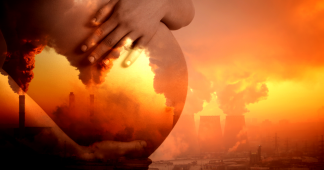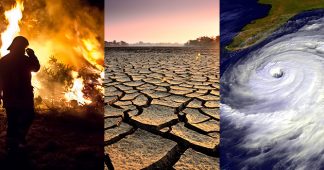World leaders are likely to make bold statements at this week’s climate summit, but away from the rhetoric, how are European countries doing on tackling global warming?
They gather in New York with the events of last week fresh in their minds when millions took to the streets to protest a lack of action on climate change.
We looked at a few key indicators to find out: greenhouse gas emissions per capita; share of renewable energy in transport; and progress in reducing CO2 from new cars.
Back in 2015, United Nations member states adopted Agenda 2030, which imposed targets in various areas, including protecting the planet from environmental degradation.
It’s been four years since the countries signed up to the sustainable development goals (SDGs) and it is fair to say that the world has a long way to go.
Below, Euronews looks at the latest data from the 28 countries of the European Union to see how the region has performed on its SDGs since 2017.
The good news is, there is certainly some momentum behind the push to tackle climate change.
Last week, Germany announced a €50 billion package that set out a roadmap for the greening of Europe’s largest economy over coming decades, including incentives to buy electric cars, surcharges for domestic flights and extra money for the national railway.
Meanwhile, 87 major companies in sectors from food to cement to telecommunications have pledged to slash their greenhouse gas emissions in a new campaign to steer multi-nationals towards a low-carbon future, organizers said on Sunday.
We Mean Business, a coalition of advocacy groups, said dozens of companies had joined the initiative in the two months leading up to the UN summit.
There are European countries among them: Swiss food company Nestle, French building materials company Saint-Gobain, and French cosmetics maker L’Oreal have all committed to slashing carbon emissions to net-zero by 2050.
Read more at https://www.euronews.com/2019/09/23











